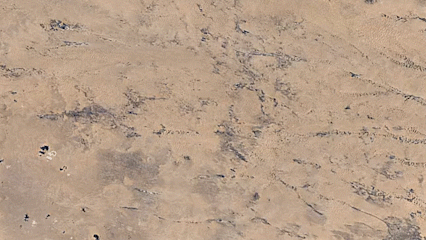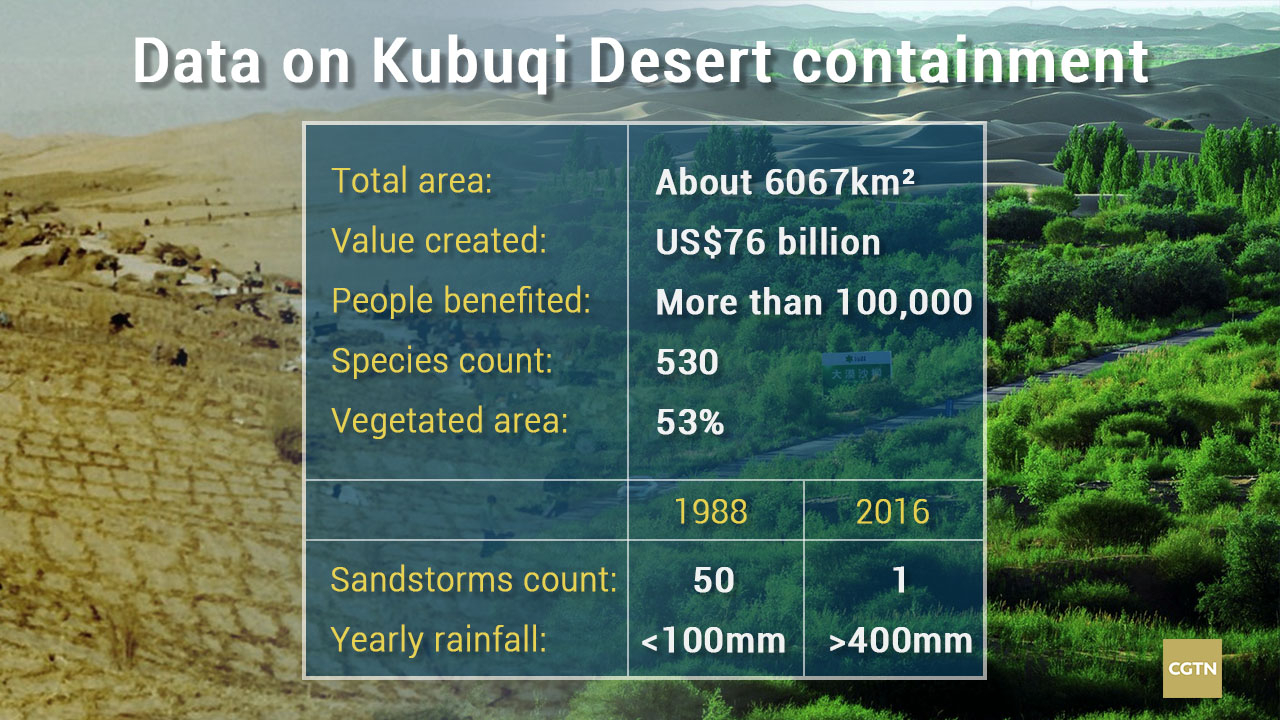
Eco
22:58, 29-Jun-2018
30-year business in a north China desert benefits 100,000 people
Updated
22:52, 02-Jul-2018
By Gong Zhe

What kind of business can survive a desert filled with almost nothing but sand? A data report released by Chinese researchers on Friday claims that a company is not just surviving but succeeding in the north of the country.
Elion Resource Group and its leader Wang Wenbiao are more than acclaimed by the report, which recognizes their 30-year efforts in containing the expanding desert while making a profit.
The lead scientist of Chinese Academy of Forestry Yang Wenbin said, "Elion's desert control model relies on its world-leading technologies, which includes a robot tree farm and breeding new plant species that can fit in the desert ecosystem."
"These technologies are great treasures for China's environmental protection," he added.

Graph by Pan Yufei
Graph by Pan Yufei
Elion found its business in China's 7th largest desert, the Kubuqi Desert near Erdos city in the Inner Mongolia Autonomous Region.
Since 2017, the business model has been named "The Kubuqi Model," recognized by the head of UN Environment Programme (UNEP) Erik Solheim.
Solheim also spoke at the event for the release of the data report, saying that a similar model may be applied to more deserts, especially those along the Belt and Road.
Environmental media around the world covered the model a lot in the past year.
CGTN's business reporters visited Elion and a similar firm M-Grass last year and interviewed Wang Wenbiao.
We at CGTN Digital have also made a mini-documentary recently, telling you the story of a "desert fighter" living in Erdos City.
The Kubuqi desert is also known to be one of the main sources of the sandstorms that hit Beijing in the mid-2000s as it is located about 600 kilometers to the west of China's capital.
(Cover image: Satellite images of Kubuqi Desert from 1984 to 2016. Courtesy: Google Earth Engine)

SITEMAP
Copyright © 2018 CGTN. Beijing ICP prepared NO.16065310-3
Copyright © 2018 CGTN. Beijing ICP prepared NO.16065310-3